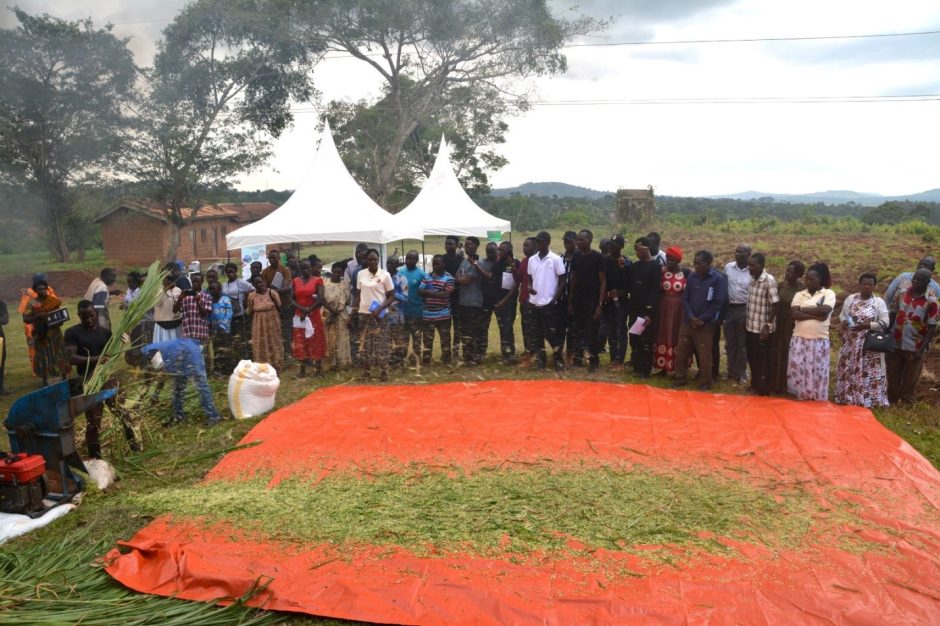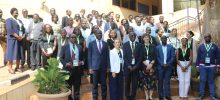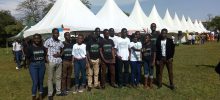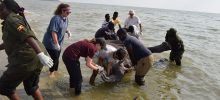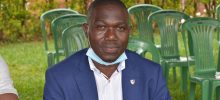Makerere University Field Day training and knowledge sharing on livestock feed Climate-Smart Innovations conducted at Our Lady of Assumption Mitala Maria Parish in Buwama.
A team of scientists and students from Makerere University convened at Our Lady of Assumption Mitala Maria Parish in Buwama where, together with farmers from the surrounding area undertook a practical demonstration of improved silage-making technologies aimed at faster animal feed production. The outreach activity was aimed at addressing the challenge of low production in terms of milk and meat from livestock, which was attributed to low quantity and poor quality of feeds especially during the dry season, coupled with the poor production systems with limited land–intensive systems of production in the face of climate change.
The farmer field school event held on Wednesday 20th November 2024 was organized under the theme; Stakeholder Platform: Collaborative Knowledge Co-Creation and Sharing for livestock feed Climate-Smart Innovations in Uganda. It was one of the four-year collaborative research project activities titled, “Building Capacity for Innovation and Advancement of Climate Smart Agriculture in East and Southern Africa” (CICSA-E&SA). This collaborative research project is implemented by Makerere University in partnership with the Norwegian University of Life Sciences (Norway), Maseno University (Kenya), and LUANAR and DARS (Malawi), funded by the Norwegian Agency for International Cooperation and Quality Enhancement in Higher Education (Diku)
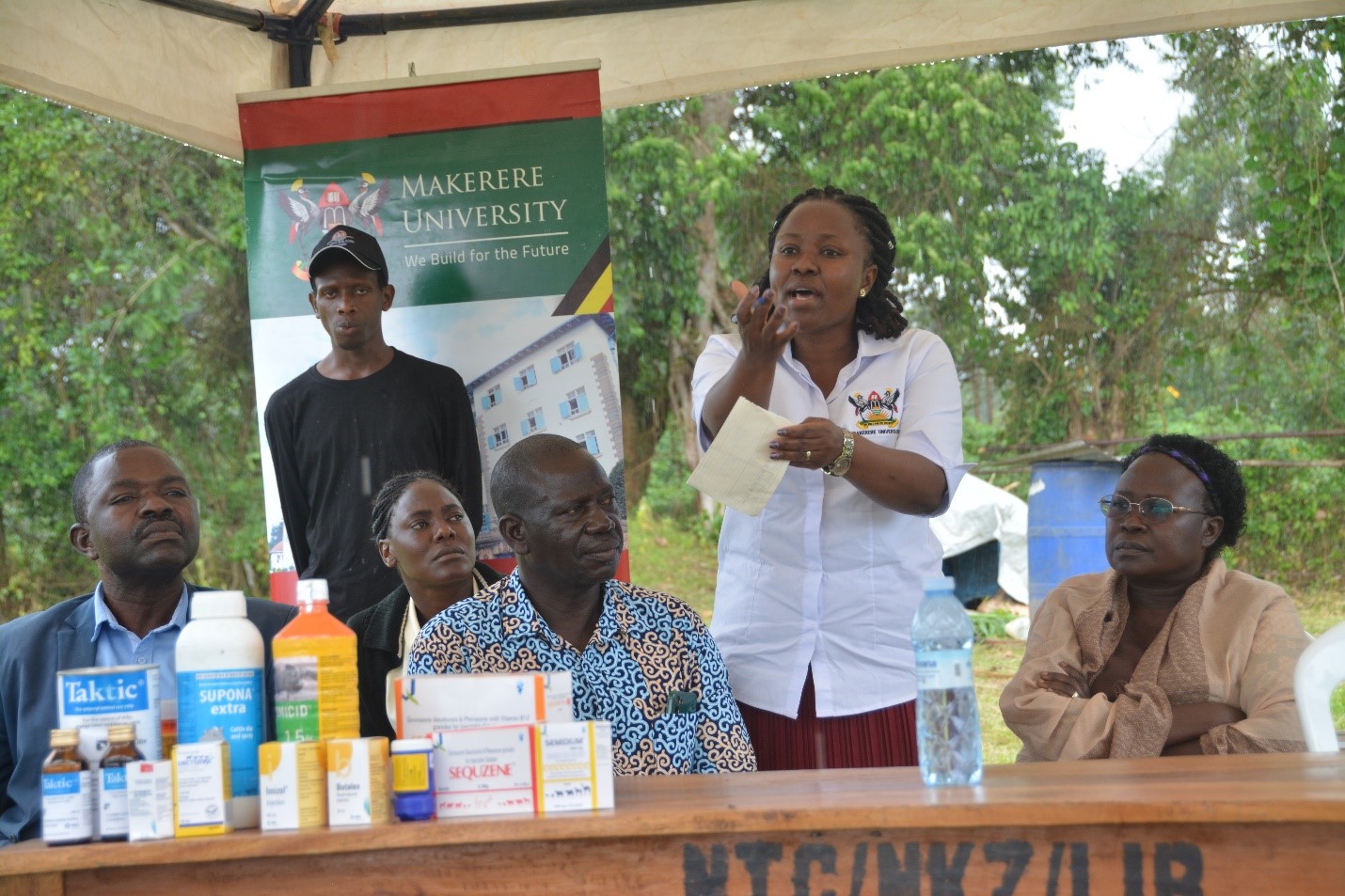
The Principal Investigator, Dr. Dorothy Nampanzira Kalule, explained the Climate Smart Agriculture
The Principal Investigator, Dr. Dorothy Nampanzira Kalule, who is also the head of the Department of Livestock and Industrial Resources (LIR) at the College of Veterinary Medicine Animal Resources and Biosecurity (CoVAB) led the team that comprised Dr. Herbert Mukiibi from CoVAB, Prof. Vincent Muwanika from the College of Agricultural and Environmental Sciences (CAES) and Dr. Esaete Josephine from the College of Education and External Studies.
In her remarks, Dr. Nampanzira observed that because of climate change, the country particularly the farming communities was experiencing challenges in sustaining productivity and in getting adequate feeds for the livestock in the dry spells. We are looking for innovations that can sustain production she said, while emphasizing the fact that several useful practices from indigenous knowledge could be developed further for the benefit of many others. She said as scientists, they were going to the communities to look out for such practices, have them validated, and thereafter build capacity about these practices. Silogist, the technology used in making silage was developed through such on-farm experiences to preserve pastures and ensure the availability of feeds, especially in the dry season, she noted.

Farmers asked questions during the session
One of the pillars of the project, Building Capacity for Innovation and Advancement of Climate Smart Agriculture in East and Southern Africa” (CICSA-E&SA), is the creation of a stakeholder platform involving various players in the livestock value chain, inclusive of researchers, farmers, politicians, and the church. The outreach conducted in Mitala Maria was in line with the project’s objectives of developing a Climate Smart Agriculture (CSA) platform that includes key stakeholders engaged in activities and initiatives that promote Livestock CSA practices and technologies that limit greenhouse gas emissions from Livestock. Through such fora, the stakeholders would deliberate and establish why, despite the number of innovations and technologies developed by scientists at Makerere University, farmers were still engrossed in poverty as evidenced by the lack of feeds during the dry season. The stakeholder engagement was expected to find ways of transferring these technologies to the people for adoption, leading to improved livestock productivity said, Dr. Nampanzira while explaining why the university reached out to the communities through Mitala Maria Catholic Church.
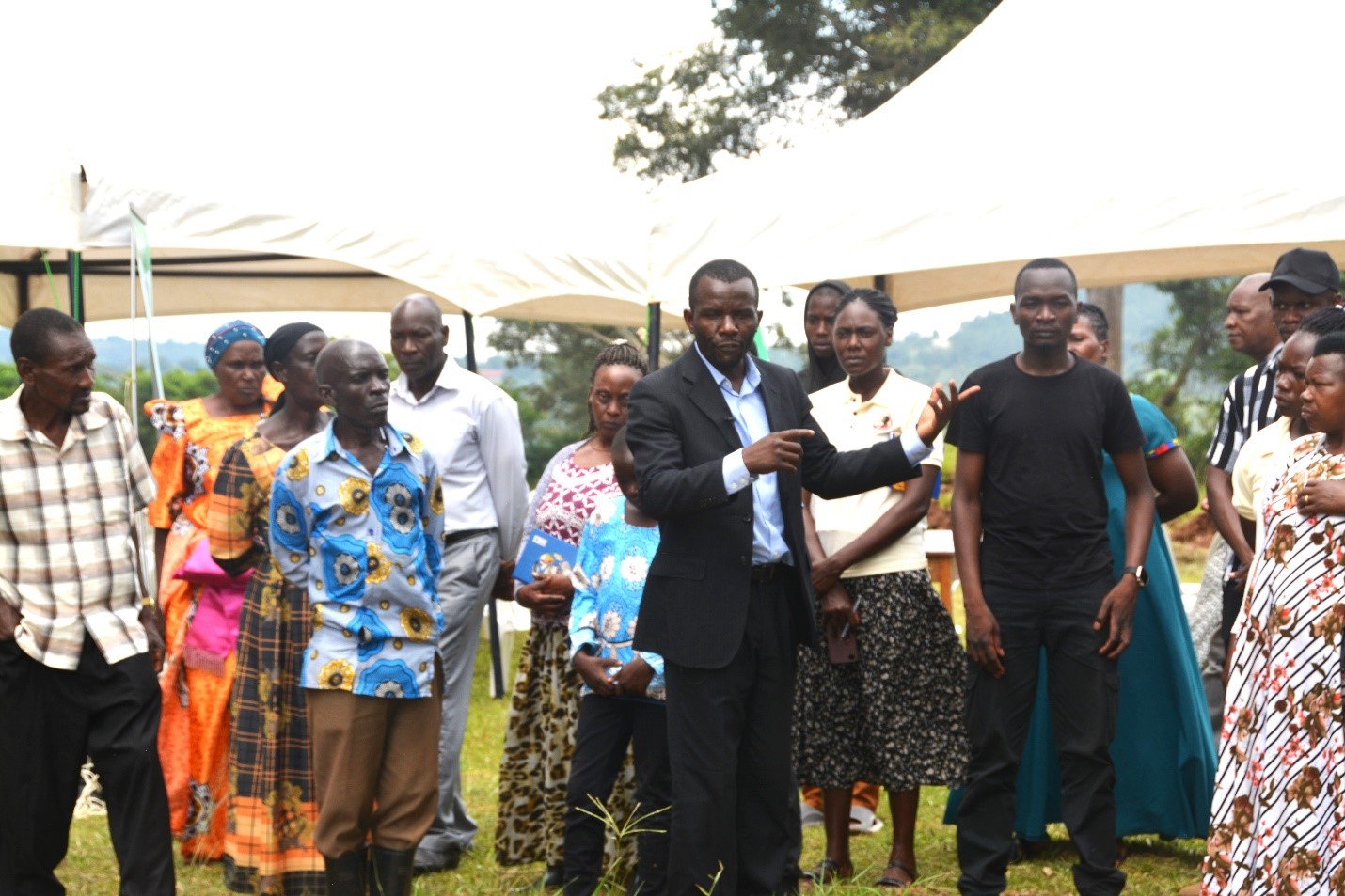
Dr. Herbert Mukiibi introduced the technology to farmers
Dr. Herbert Mukiibi, the brain behind Silogist who is a veterinarian by training with an interest in the microbiology field said throughout his practice he has been exposed to the challenges faced by farmers and using literature from research at Makerere University, together with the farmers, through action research, he has come up with solutions to the existing problems faced by farmers. He noted a lot of expertise has been written in many forms of publications which unfortunately was not being used by the farmers. As a university, we were finding ways of packaging such messages through such demonstrations to enable hands-on experience and tooling amongst the farmers.
‘In Mitala Maria, we found them with a non-commercial farm, shared the technologies that were piloted in other communities, and supported them make the farm commercial. We are here to look at what was done and enable other farmers to learn that they can turn around their farms and go commercial amidst the climate change era where farmers are increasingly getting confused with low crop and animal yields because of the scarcity of resources’ said Dr. Mukiibi. He pointed out other challenges faced by farmers like lack of nutrient recycling caused by people taking products from the farm and not having a loop of nutrients coming back to the farm leading to depletion of soils for which he said, he had come up with nutrient recycling tools so that farmers can realize high yields as it used to be.

A section of the farmers that attended the farmer field school
Prof. Vicent Muwanika who explained his background and linkages with the Sustainable Future Global Network and the Stewardship Institute of Environment appreciated the efforts by Mitala Maria parish which was engaged in several enterprises including livestock farming, banana plantations, eucalyptus growing, and others. He said as a faith-based institution, it was the mandate of the institution to embark on empowering their faithful with the needed knowledge and skills necessary for them to generate household and ultimately church income. He said allowing the farm to be used as a demonstration for others to come and learn was important in supporting the individual household efforts to gain the skills needed to undertake enterprises for income generation.
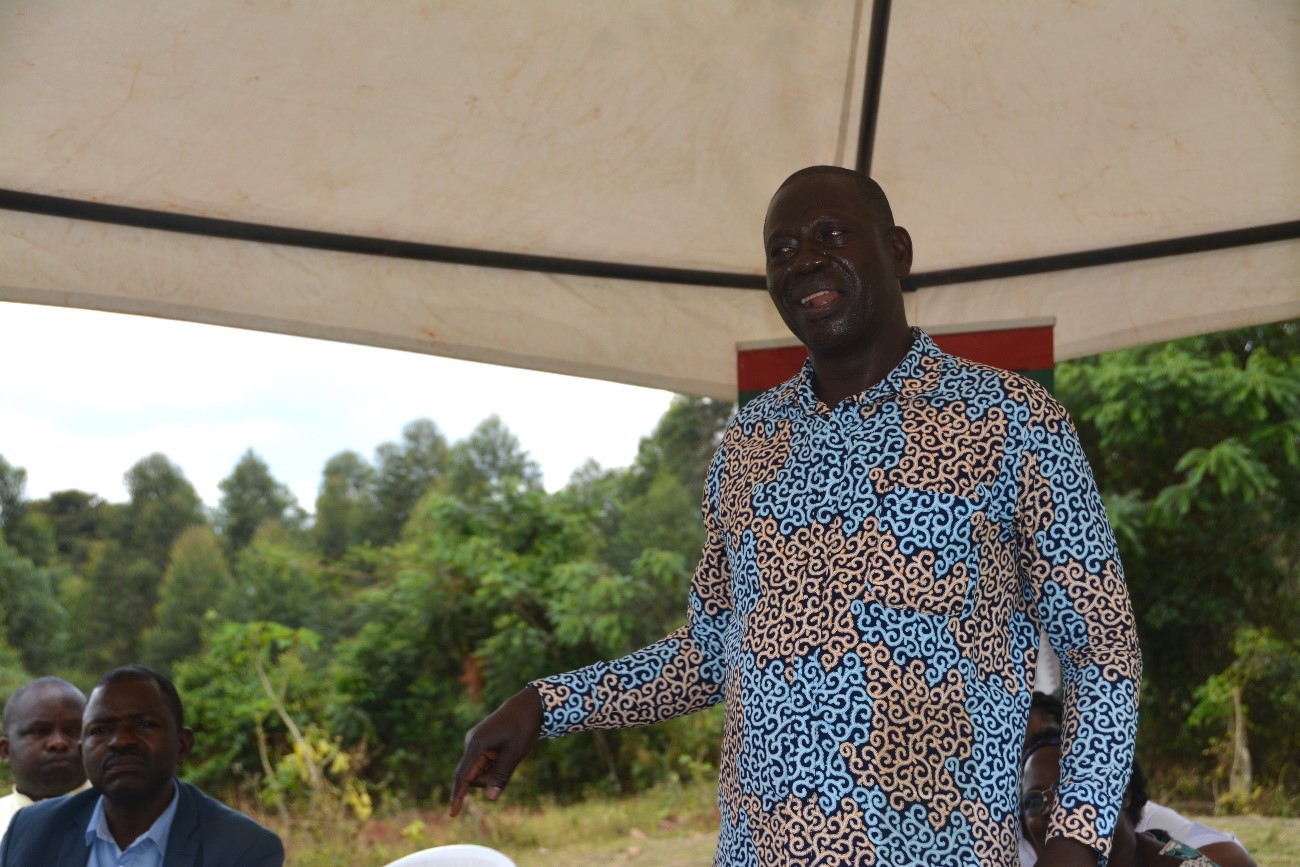
Prof. Vincent Muwanika
Several livestock farmers and those with intentions of embarking on the trade participated in the day’s activities drawing valuable learning experiences. ‘I have found silage very user friendly because the cows like it very much, secondly, it makes the feed readily available’, said the cattle attendant at the Mitala Maria farm that hosted the farmer field school where the demonstration was conducted. He said he benefited from the training to further understand the process of making silage and was optimistic that he was going to do the same in his own home where he is rearing cattle.
The head of the laity Mitala Maria Mr. Bwanika informed the gathering that although the farm had been in existence for a long time, it had deteriorated. He commended the team from Makerere University who came on board to support the revitalization of the farm using several technologies according to the strategic plan of the parish. He said, with the advice of the university staff, they were able to plant the pastures, restock the farm, and were on the right path to make it a model farm for the rest to learn from.
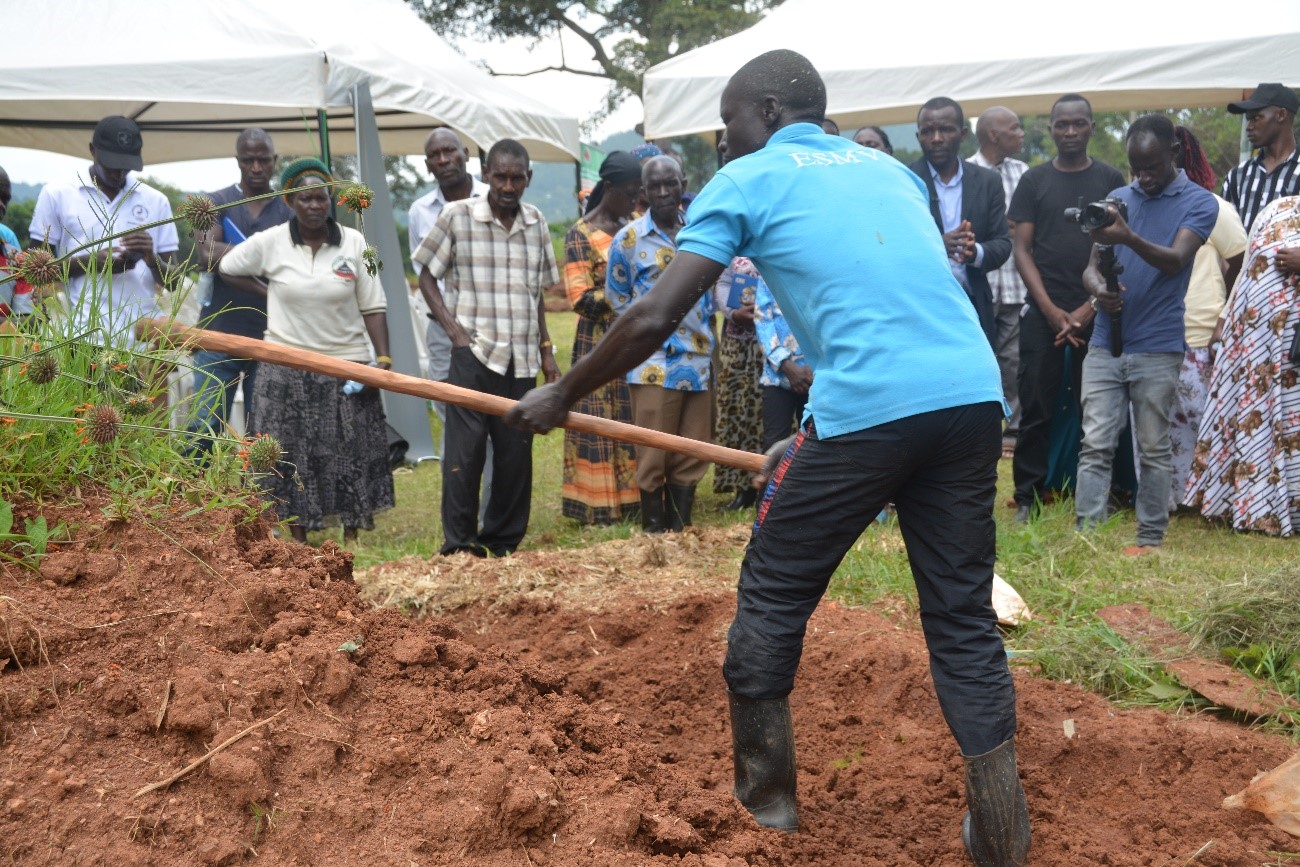
Farmers witness the serving of silage by the attendant
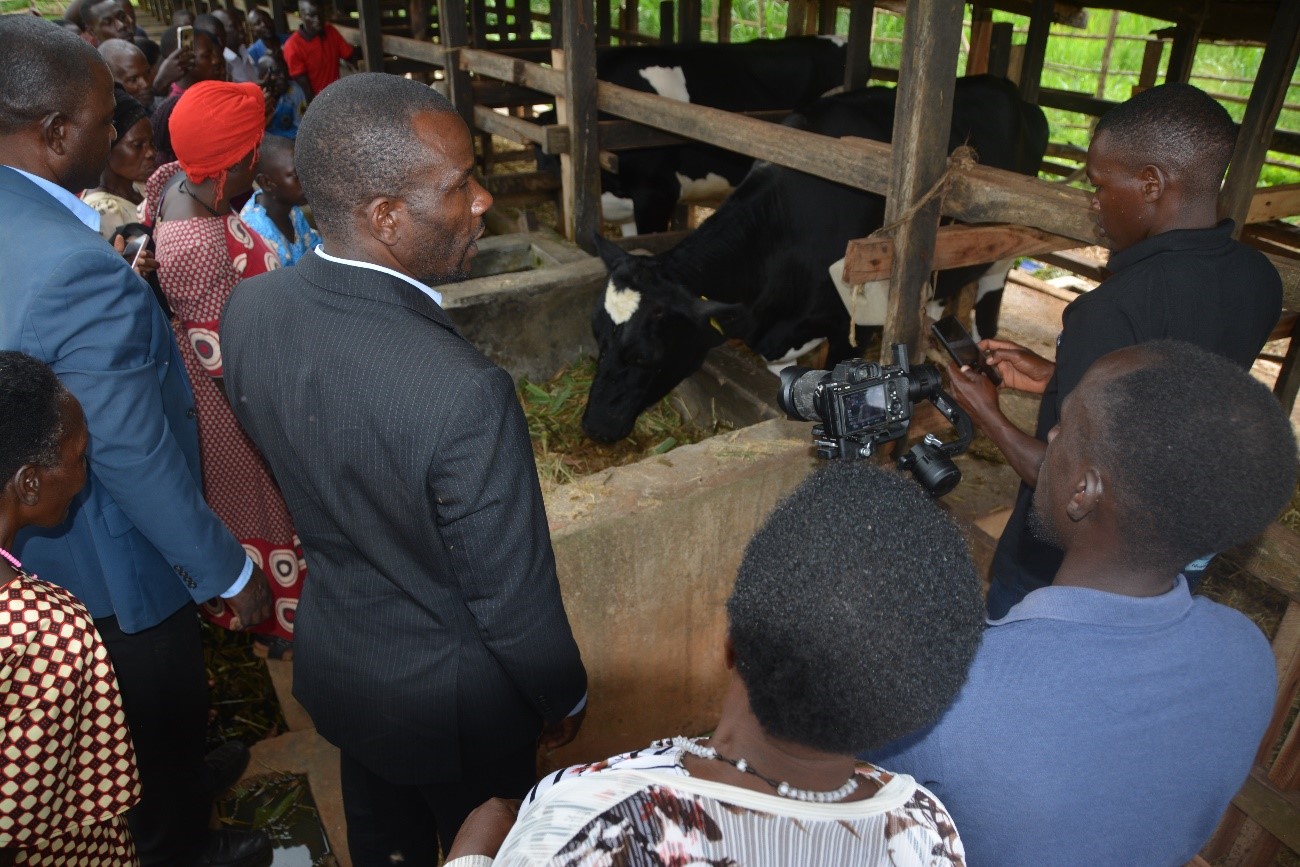
Cows being fed to the silage made on the farm
Building Capacity for Innovation and Advancement of Climate Smart Agriculture in East and Southern Africa” (CICSA-E&SA) aims to develop a higher education multi-disciplinary curriculum in agriculture and economics, targeted to building knowledge and scientific capacity for innovation and advancement of Climate-Smart Agriculture (CSA) in East and Southern Africa through long-term partnerships between and among NMBU and four institutions in Kenya, Malawi, and Uganda.
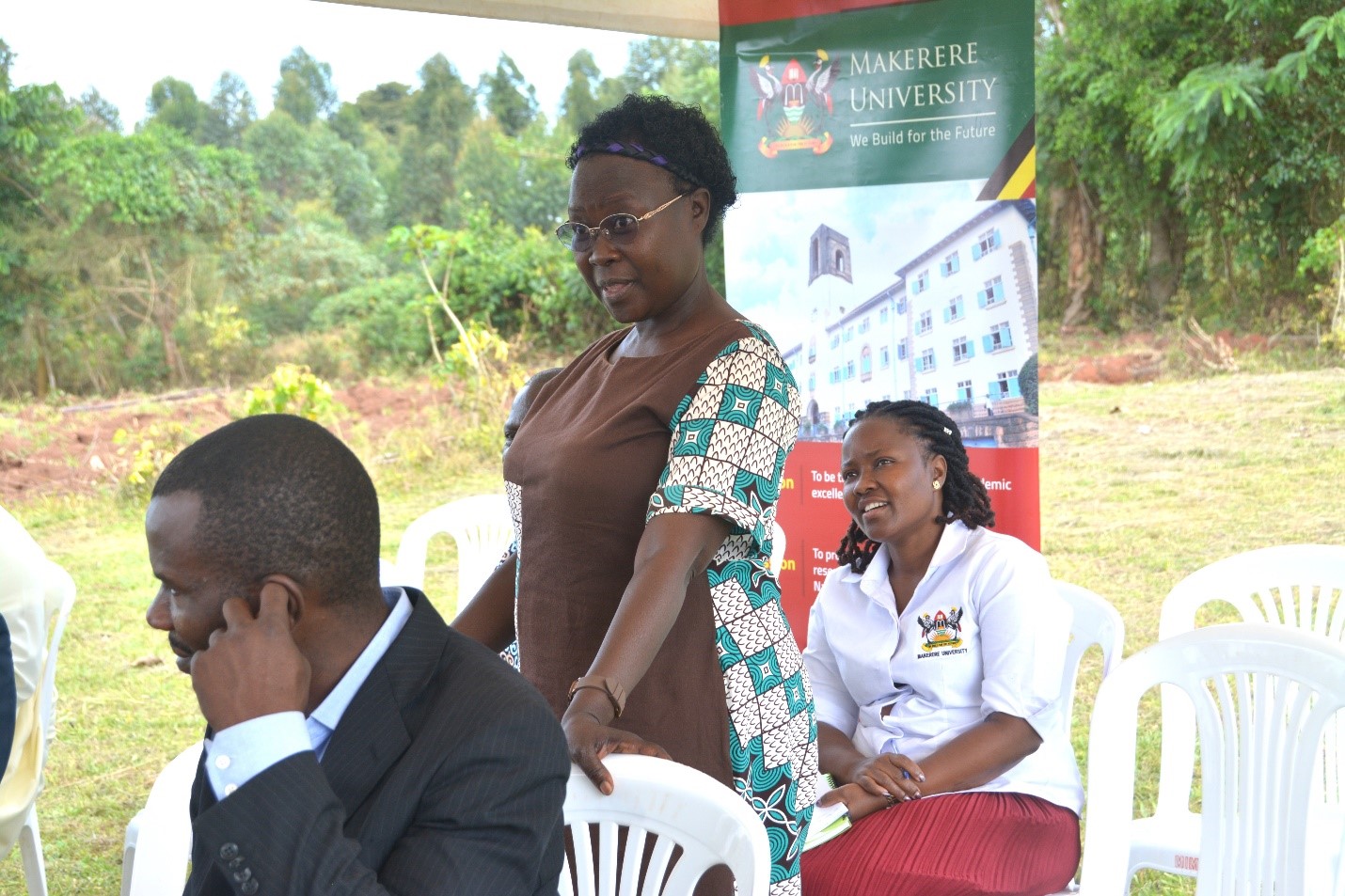
Dr. Josephine Asaete (standing) addressed the gathering about the intention of the outreach
Story by Harriet Musinguzi


